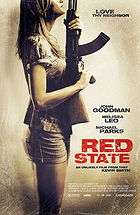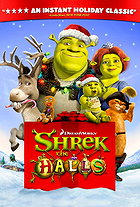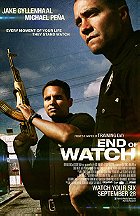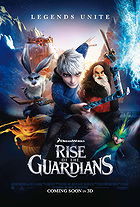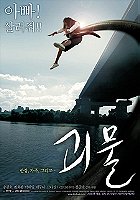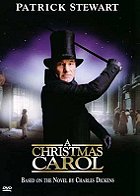It's borderline impossible to make a bad movie out of Charles Dickens' 1843 novella A Christmas Carol. A bona fide classic which has been adapted countless times for films and television shows, Dickens' story is equipped with rich characters, an evocative setting, valuable messages and wonderful sentiment. Produced by MGM, 1938's A Christmas Carol was the first high-gloss, big-budget (for the period) cinematic treatment of the source material. Nimble and powerful, this adaptation was the definitive film version of Dickens' parable for over a decade. Though superior versions have been produced over the years, this A Christmas Carol remains an undisputed classic with plenty to recommend.

In the unlikely event that you've forgotten the story of A Christmas Carol, it concerns rich old coot Ebenezer Scrooge (Owen), who detests the notion of peace and goodwill. He especially hates Christmas, perceiving the jolly festive holiday as an unwanted hindrance to his business. Returning home on one Christmas Eve after sacking his long-suffering clerk Bob Cratchit (Lockhart), the ghost of Scrooge's former business partner Jacob Marley (Carroll) presents himself to Scrooge. Marley warns Scrooge that he must change his ways to redeem his soul, and explains that he will be visited by three spirits - the Ghost of Christmas Past (Rutherford), Christmas Present (Braham) and Christmas Future (Corrigan) - who aim to help Scrooge reform and persuade him away from a life of greed and ill temper.
Screenwriter Hugo Butler palpably understood that a rote cinematic adaptation of a literary source rarely works, and hence altered aspects of Dickens' novella to terrific effect. For instance, Scrooge's nephew Fred is given more dimension and presence, Cratchit is actually sacked by Scrooge on Christmas Eve, Scrooge alerts the police about Marley's ghostly presence, and the closing Christmas Day festivities are a little different. Such additions and alterations give the picture its own unique voice, and, more importantly, they allow the film to stand apart from the dozens of other adaptations that have been produced in the decades since this version. However, a few key elements are excluded entirely to detrimental effect, such as Scrooge's former fiancée and old Fezziwig's party. As a result, this Christmas Carol feels underdone. Clocking in at a slim 69 minutes, the film rushes through the material, seldom allowing sufficient dramatic growth and consequently making Scrooge's arc feel unearned. Indeed, Scrooge begins repenting too soon, abandoning his miserly ways almost immediately without sufficient motivation. The picture lacks a key scene which clearly affects Scrooge in a substantial way.

A critical aspect of any adaptation of A Christmas Carol is its atmosphere and mood. Luckily, this version for the most part gets these characteristics right. Director Edwin L. Marin and his team did a remarkable job of recreating bustling 19th Century London. Production design is laudable, with storefronts and streets that look entirely convincing, supplemented with Yuletide decorations and crowds of laughing children and merry onlookers. However, while Marin nails the jolly Christmas atmosphere, he unfortunately downplays the spookiness of the film's ghostly elements. Scenes featuring the spirits contain a few still-impressive special effects shots, but it's clear that Marin was catering to family audiences, particularly during scenes featuring the ostensibly foreboding Ghost of Christmas Future which are decidedly tame.
This A Christmas Carol was actually conceived for actor Lionel Barrymore, who had played Scrooge in a popular annual radio broadcast and was hired to recreate the role on film. However, the actor began to suffer major health problems, compelling him to bow out of the picture a few weeks before filming. To replace him, the actor suggested his friend Reginald Owen, and the rest is history. Although he's not the best Scrooge, Owen's performance is commendable; he looks the part, he's appropriately menacing in the film's early stages, and his performance at no point feels contrived. Meanwhile, Barry Mackay is a delightful Fred, playing the role as an irresistibly happy chap with a fiancée who enjoys sliding on ice and playing in the snow like a schoolboy. Since Fred has a heightened presence here, it's a huge benefit that Mackay is so charismatic. Almost stealing the show, though, are Gene Lockhart as Bob Cratchit, and Gene's real-life wife Kathleen as Mrs. Cratchit. The two supply warmth and Christmas cheer, and remain eminently watchable. To top things off, their daughter June plays one of the Cratchit children. The only real weak link is Terry Kilburn as Tiny Tim. At 12, Kilburn looks too old for the role, not to mention he's strangely effeminate. Worst of all, he doesn't look sick or dying; he makes Tim look like a kid who just broke his leg.

Despite its shortcomings, 1938's A Christmas Carol is a solid versions of this classic Yuletide morality tale. For a '30s movie it's surprisingly accessible, and there's little wonder why so many people have ingratiated this picture into their annual Christmastime traditions.
7.6/10
 Login
Login
 Home
Home 183 Lists
183 Lists 1668 Reviews
1668 Reviews Collections
Collections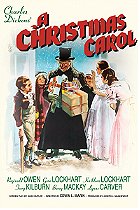
 0 comments,
0 comments, 







